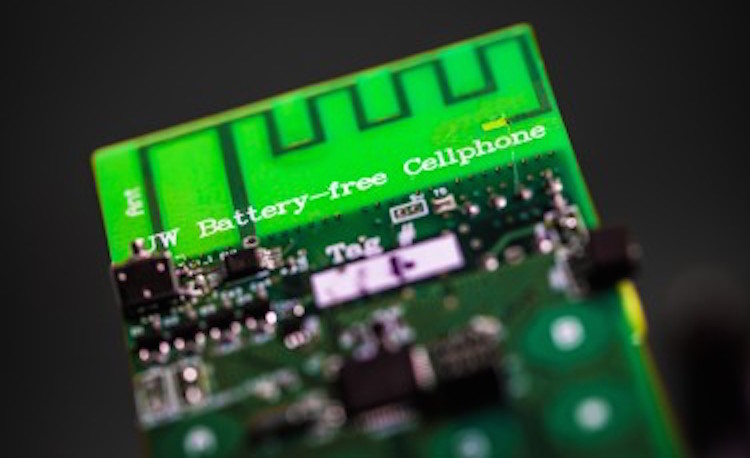Say goodbye to frayed charging cables, and say hello to endless battery life.
That’s because researchers at the University of Washington have just constructed the world’s first battery-free phone.
The phone is powered by a few microwatts of ambient radio signals and light that are harvested from the surrounding area.
CHECK OUT: 3D Printed Organ-On-a-Chip May Replace Animal Testing
The team was also able to make Skype calls on the phone, proving that it could be used to contact a base station.
“We’ve built what we believe is the first functioning cellphone that consumes almost zero power,” said the study’s co-author Shyam Gollakota. “To achieve the really, really low power consumption that you need to run a phone by harvesting energy from the environment, we had to fundamentally rethink how these devices are designed.”
The current prototype only performs the basic functions of sending and receiving calls, and transmitting speech. The phone conveys speech by detecting the vibrations of the speaker’s voice and translating the words into analog data, rather than digital.
RELATED: World’s Largest 3D Printer Makes Almost Zero-Cost Homes Out of Mud
“The cellphone is the device we depend on most today. So if there were one device you’d want to be able to use without batteries, it is the cellphone,” said faculty lead Joshua Smith, professor in both the Allen School and UW’s Department of Electrical Engineering. “The proof of concept we’ve developed is exciting today, and we think it could impact everyday devices in the future.”
While the prototype currently needs a base station within 31 feet in order to operate, the team is next looking to integrate the technology into WiFi infrastructure.
“You could imagine in the future that all cell towers or Wi-Fi routers could come with our base station technology embedded in it,” said co-author Vamsi Talla. “And if every house has a WiFi router in it, you could get battery-free cellphone coverage everywhere.”
(WATCH the video below)
Power Up With Positivity: Click To Share With Your Friends (Photo by Mark Stone, University of Washington)




















